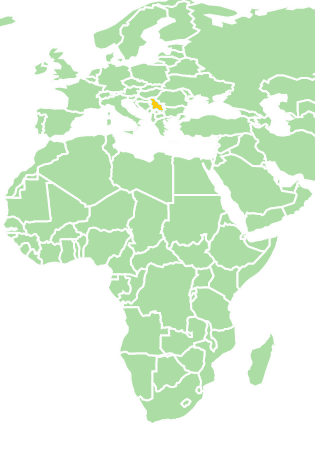Referenzen
Unsere Referenzen International
Unsere Referenzen.
Development of an Animal Identification, Registration and Traceability system (AIR&T) in Suriname
Client: Ministry of Agriculture, Animal Husbandry (MAAHF)
Project description: The requirements will be documented in a so called technical programming concept (TPC) which includes the complete information for the parameterization process. Once the TPC is approved by the beneficiary the parameterization process can start. At the end of phase 2 the end user training will take place followed by the testing and approval of the delivered software by the beneficiary. Stage 3 is foreseen to start with the roll-out of the AIR&T system and the specified functionalities. This approach allows that staff of the beneficiary is actively involved in the usage and management of the ATS platform from project month 6 onwards. This gives the opportunity for a continuous knowledge transfer for a period of 12 months.
Our services:
- Elaboration of a Strategy and Action Plan for a multipurpose (modular) animal identification, registration and traceability (AIR&T) system in Suriname by using the ATS platform tools to analyze the purpose of the AIR&T systems, to deduct needs and to identify the appropriate scheme of the proposed AIR&T system
- AIR&T implementation plan; the pre-conceptualized approach model of the ATS platform is used for an effectively project planning and implementation
- System Requirements Specifications by using the ATS platform tools to specify relevant parameters (business processes, use cases, data elements)
- AIR&T Software Solution Platform
- User Manuals
- AIR&T reports
Period: 10/2015 – 03/2017
Country: Suriname
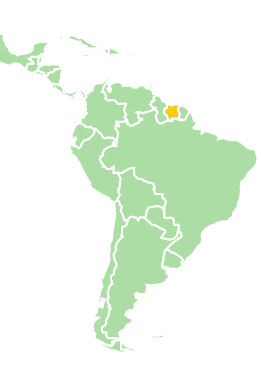
Central Establishment Register including a central communication platform
Client: Landesamt für Geoinformation und Landentwicklung Baden-Württemberg
Project description: The Ministry of Rural Affairs and Consumer Protection of Baden-Württemberg operates several databases and the corresponding registers for animal keepers, crop farmers, food companies and other stakeholders relevant to the agricultural, veterinary and food safety sector Due to historical reasons these different registers were developed independently which led to the fact that establishment information is collected and maintained with different software applications.
The result was a significant inconsistency of the data between the involved systems. The now introduced central establishment register together with the central communication platform integrates the involved systems and safeguards the consistency of the data. It avoids double entry of the same information by sharing the information between the databases.
The central establishment register is implemented under a so called service oriented architecture (SOA) which allows the communication between the integrated system by using open standards such as webservices or REST-Services (REST = Representational State Transfer). The services of the central establishment register and the services provided by the integrated systems are orchestrated by a workflow engine (Activevos) which carries out the different business processes according to the requirements of the supported use cases. Due to this open architecture additional components can be integrated by consuming the services or by providing own services for the central establishment register.
The central establishment register and the central communication platform rely on well established enterprise level open source products such as Liferay (single sign on portal) , Apache Service Mix (Enterprise service bus) or Postgres/PostGIS (database and geographical information system). The frontend is implemented as portlet under Liferay using Java EE. The access to the data in the database is controlled by a so called communication layer which checks the request and delivers the data to the requestor depending on his privileges.
The routing and transformation of the data exchange is implemented in form of so called Camel routes under the Apache Service Mix. This allows changes in the transformation or in the rules for the routing (content based routing) by changing the configuration file of the Camel route without any adoption of the source code.
Our services:
- Detailed system analysis including development of the necessary XML schemas and the use cases
- Elaboration of a detailed technical programming concept
- Evaluation and selection of the different products according the best of breed approach
- Development of the services according the defined use cases
- Development of the frontend and backend
- Configuration of the Apache Service Mix and the corresponding Camel routes
- Installation of development, test and production environment
- Integration of the developed software modules into the software development environment of the client allowing an automated deployment to test and production environment
- Development of test cases according to the defined use cases
- Function and integration testing
- Training of administrators
- Provision of manuals
Period: 01/2017 – 06/2018
Country: Germany
Development of the Livestock Identification and Traceability System (LITS) database of Ethiopia
Client:Ministry of Livestock of Ethiopia
Project description:
The aim of this project is to execute the development and implementation of the Livestock Information and Traceability System (LITS database) in Ethiopia.
- Brief desk study from the Service Provider’s head office
- Initial field visit of three experts. This expert mission includes 15 working days of the IT System Architect, 15 working days of the AIT Business Analyst and 10 working days of the AIT Field Operations expert.
- Elaboration of the technology specifications for the procurement for hosting and backing up the database
- Development of comprehensive LITS database Based on the agreed specifications the Service Provider customized the software by adaptation the relevant parameters, layouts and workflows.
- Provision of user manuals User manuals were provided for database administrators and for end users in English language.
- Presentation of the software and manuals In the course of a second expert mission to Addis Ababa the Service Provider will present the customized software and the corresponding manuals.
- Training of trainers on utilization of the database The Service Provider provided a training by the AIT Business Analyst of 15 working days in Addis Ababa.
- Training of database manager on maintenance of the database and its software The Service Provider will provide a training by the AIT Lead Developer 5 working days in Addis Ababa.
- Maintenance and Support The Service Provider’s support team will be available during business hours (9:00 – 17:00 CET) Monday through Friday providing third level support. First and second level support shall be organized by local staff of the organisation.
- Service Warranty The Service Provider will implement the LITS according to the agreed final specifications.
Our services:
- Installation of the complete infrastructure and the standard software in the test environment of the beneficiary,
- Elaboration of the specifications for the parameterization of the software; preparation of a Technical Programming Concept (TPC) with a detailed description of all functionalities of the AIT application (business processes, use cases, data elements) and interaction with workflows in the field, devices and data capture forms
- Technology Specification and parameterization of the software
- Preparation of user manuals and training manuals for different user groups
- Trainings (TOT and end-user training)
- Handing over of source code and provision of the national perpetual license for the Government of Ethiopia
- Support and maintenance services according this Service Agreement
Period: 02/2016 – 06/2017
Country: Ethiopia
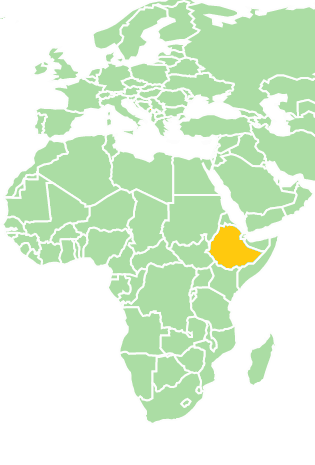
Project: Development and Operation of an Enhanced Livestock Identification and Traceability System Integrated with an Animal Health Information System in Tanzania
Period: 04/2013 – 09/2014
Client: Ministry of Livestock Development and Fisheries of Tanzania
The Government of Tanzania (GoT) has resolved to establish and operate a Livestock Identification and Traceability System (LITS). It commissioned a consultancy study to recommend appropriate LITS for Tanzania (hereafter called TANLITS) that was conducted in August-September 2008, and has procured essential hardware. The project ‘‘Support for Development of the Tanzania Livestock Identification and Traceability System (TCP/URT/3303)’’ as a logical follow-up step aimed to develop, customize and operationalise a computerized central database for TANLITS to be tested and validated in a pilot region. The system has been introduced stepwise in certain parts of the territory of Tanzania, i.e. in zones and/or compartments. The project also provided training on database management and linked the established TANLITS with Animal Health (Veterinary Services Needs) and Animal Production (Animal Production Needs) Information Management Systems.
Our services:
- Conduct Client Needs Analysis (e.g. key components of the information system and potential interfaces; IT infrastructure where the AIT is placed; review hardware solution procured; evaluate the proposed AIT and advise on network requirements)
- Design and develop the AIT Software Solution (prepare detailed technical specifications, business processes, use cases, data description, roles and responsibilities of system partners; Software Programming; Development and Provision of interlinking with other Livestock Information Management Systems; Content Management System and Reporting)
- Customization, Installation and Testing of AIT (e.g. Configuration of Process Engines, Servers, Field Data Capture; Installation and test of application inclusive GIS functionality; Configuration of user roles and privileges; Application for data capture in the field using SMS channel; Provide Source Codes)
- Preparation of Standard Operation Procedures and Guidelines
- Establishment of Help Line and PR Communication Desk
- Training of Trainers
- Provision of Software Manuals
- Participation in Field testing and Implementation
Country:Tanzania
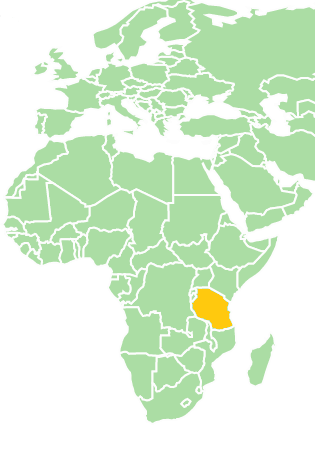
Implementation of National Animal Identification and Traceability System for Jamaica
Origin of funding: Origin of funding Inter-American Development Bank (IDB)
Client: Ministry of Agriculture, Agro-Investment Corporation
Project description: Implementation of a National Animal Identification System in Jamaica following on from previous works done in that area between 2009 and 2010 with the following deliverables:
- Detailed implementation plan with updated technical requirements and specifications and proposal for organization of the national AIT system
- Report on the Technical Programming Concept (TPC), Source Code and the documentation of the AIT application; delivery of the AIT application
- Report on the introduction of the AIT application
- Report on the tagging process for one species
Our services:
- Provide a detailed implementation plan which includes the updated technical requirements/specifications (to include equipment and materials for tagging, hardware and software needs for hosting etc.) and proposal for organization of the AIT system
- Carry out GAP analysis and production of the Technical Programming Concept (TPC)
- Deliver of a functioning Animal Identification and Traceability (AIT) system database application
- Provide a source code of the application
- Provide relevant programme documentation
- Programme customization
- Carry out training of trainers
- Prepare user Manuals for various user groups
- Guide the initial start of the tagging process for at least one species (cattle
Period: 12/2013–03/2015
Country:Jamaica
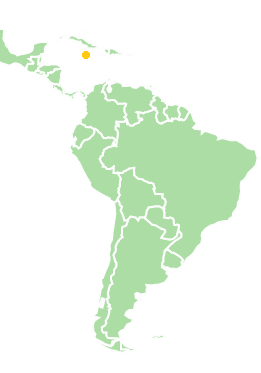
Information Technology - Information Management Consulting Services for Production of the complete technical description of requirements for the Information System of the Veterinary Service of the Republika Srpska
Origin of funding: World Bank, Ministry of Agriculture, Forestry and Water Management of Republika Srpska, BiH
Client: Ministry of Agriculture, Forestry and Water Management (MAFWM)
Project description: The aim of this project was the service for the production of complete technical requirements for the future information system for the Veterinary service of the Republic of Srpska that is, the project tasks for production of the information system (hereinafter referred to as: the information system). The end user is the Ministry of Agriculture, Forestry and Water Management of the Republic of Srpska. The future information system ought to ensure a single database for the entire territory of the Republic of Srpska, in order to more efficiently perform the business processes, budget planning and monitoring of business trends in the veterinarian service of the Ministry. The technical description of the future information system needs to be conceptualized in a way that enables production of a functional information system for the needs of the end user, supporting interoperationability at all levels including automatic exchange of data with all organizations that the Ministry is obliged to exchange data with or has such a need..
Our services:
The services in the production of the complete technical description of requirements for the information system should be carried out jointly by veterinary and IT experts and must entail:- Functional analysis and parties involved
- Coverage of the information system
- Design of an IT and communication network system
- Review of the supporting technical documentation for each activity
- Review of recording/reporting requirements and administrative/technical modalities for each activity
- Development of a data model by applying an ER methodology
- Suggestions for the plan of implementation of the information system
- Standard documentation of the technical description of the information system
- Additional requirements set by the customer.
Period: 05-06/2011
Country:Bosnia-Herzegovina
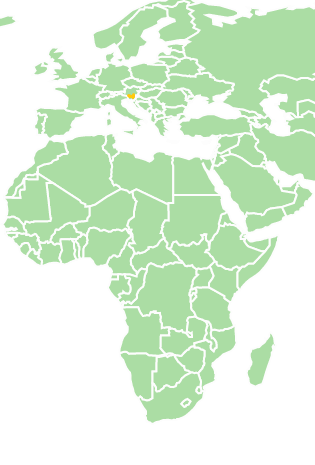
Animal Identification and Registration (I&R) Montenegro Phase II
Origin of funding: EU CARDS
Client: Ministry of Agriculture, Forestry and Water Management (MAFWM)
Project description: The overall objective of the project of which this contract has been a part was to improve food safety standards of animal origin. The scope of the Consultant’s work was technical assistance and institution building support. The project aimed to strengthen the formerly started bovine I&R system and to expand the concept to sheep and goats. This included the creation of a computerised holding register of sheep and goat holdings in line with EU standards and the review and harmonisation of legislation and the development for an integrated animal I&R and Veterinary Information System (VIS) including animal disease surveillance for bovine, ovine and caprine species including detailed implementation, staffing and financial plans and obtain approval for this system with the possibility of future expansion to other animal species. The amended I&R Law and the Rulebook for small ruminants were published. Movement reporting (including slaughter declaration) of local Montenegrin cattle increased considerably (+61%). The farmers "cleaned" their cattle register for correct subsidy application.
Our services:
- Support of the I&R Unit of the VD in operating the newly introduced bovine I&R, assist in improving and completing the system where necessary
- Complete /Update Bovine I&R legislation in line with current EU legal requirements i.e. illegal livestock markets, animal carcass rendering, home slaughtering. The primary I&R Legislation (I&R Law) has been amended with provisions for small ruminants in accordance with EU legal provisions, which were presented in a ToC (Table of Correspondence). Preparation of secondary legislation (Book of Rules) for ovine and caprine I&R in line with current EU legislation.
- Design the sheep and goat holding register and I&R system
- Procurement of IT equipment, supplies and services and securing its delivery, installation and operation for holding register, I&R and a laboratory information system; software development and integration of components in a veterinary information system (VIS)
- Create awareness with stakeholders and the general public of the expanded I&R and VI systems, including the preparation of training materials and handbooks and publicity / print materials
- Provision of appropriate training for participants at all levels to make the VIS operational with respect to I&R of the bovine, ovine and caprine species and veterinary disease surveillance
Period: 08/2009 – 05/2011
Country:Montenegro
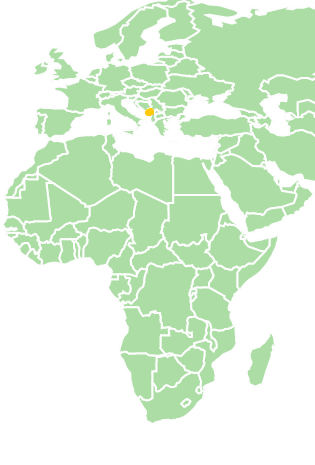
Technical Assistance for Animal Identification and Registration - Serbia
Origin of funding: EU CARDS
Client: European Community for External Actions
Project description: Provision and implementation of a detailed action plan for the extension of animal identification and registration to small ruminants (as a minimum those covered by the provisions of Council Directive 92/102), pigs, horses and bees in compliance with relevant provisions of the acquis communautaire approved by the Ministry of Agriculture, Forestry and Water Management. The I&R system for other species including small ruminants and swine was prepared to be in full compliance with the EU requirements with regard to legislation, field operation, I&R control for small ruminant, software development for field operation including movement registration for sheep, goats and swine and I&R controls of small ruminants including risk analysis, documentation i.e. "on-Holding register", movement documents including workflows and forms, manuals for animal keepers, veterinarians and inspectors. Development and implementation of a strategy for the exchange of data from animal identification and registration IT systems with other IT systems of the Ministry of Agriculture, Forestry and Water Management, other Ministries or other bodies involved of the public administration approved by the Ministry of Agriculture, Forestry and Water Management
Our services:
- Auditing: Conduct an audit of the implemented I&R systems for bovine animals, small ruminants and pigs including a review of provisions in the constitution and in the law of veterinary matters, provision of detailed tables of correspondence for relevant legislation on I&R for bovine, ovine, caprine, porcine animals and equidae species.
- Legislation: Drafting of the bovine I&R system legislation: Amendment of the Law on Veterinary Matters as far as I&R articles were concerned; preparation of the I&R Rulebooks for bovine, small ruminants, pigs, horses and bees including tables of correspondence
- I&R operation: Introduction of measures for the monitoring and improvement of the field operation of animal keepers and veterinarians for the bovine system; preparation of the I&R systems for other species
- Awareness Raising: Organisation of six
Regional Events
and four national conferences for all stakeholders and launching of an awareness campaign with all 12 Veterinary Institutes of Serbia - I&R control: Training courses for Veterinary Inspectors and 147 Inspectors and provision of a manual for the I&R controls on farms and for
control of slaughter data
entered by slaughterhouses. For theon spot controls
of the bovine I&R, risk criteria have been defined. - IT and software development: Consolidation of the database and integration of the I&R and the Veterinary Information System; integration of the Laboratory Information System
Period: 08/2009 – 05/2011
Country:Serbia
